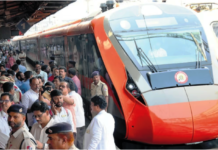Guntur, january 02, 2024 : More than 3,251 patients got a new lease of life over the past eight years following the steps taken by both Central and State governments to create awareness of organ donation.
While the initiatives have resulted in more people coming forward to become organ donors, they have not helped in bridging the gap as over 3,195 patients are still on the wait list.
Through Andhra Pradesh Jeevandan, the State has registered 781 cadaver organ transplantations, including 438 kidney transplants, 184 liver transplants, 70 heart transplants, 88 lung transplants, and one pancreas transplant. Similarly, over 2,470 live organ transplantations, including 2,441 kidney transplants, and 29 liver transplantations, have been recorded.
VIMS (Visakha Institute of Medical Sciences) director and State nodal officer for organ donation Dr Rambabu said the initiative began in 2015 at four tertiary government hospitals: KGH in Visakhapatnam, GuntGovernment General Hospital in Guntur, Sri Venkateswara Institute of Medical Sciences in Tirupati, and Kurnool GGH.
36% of donors’ organs go to waste due to delay in the entire process: Expert
The number of hospitals granted permission to be deceased-donor organ transplantation (DDOT) centres increased to 55 over the past few years. Similarly, 61 hospitals across the State have been granted permission to be live donor organ transplantation centres.
Highlighting the various measures taken by the Central government to ease the process of registering as organ donors, the nodal officer said the domicile rule has been done away with, the age bar and fee for the registration of recipients and transplantations have been removed, rules on withdrawing life support have been relaxed and organ transport across the country has been facilitated.
Further, the State government has also included bone marrow and liver transplantation, both expensive procedures, in the YSR Aarogyasri scheme, providing a ray of hope to patients in need.
Out of the total 3,195 registered patients who are yet to receive the organs, 3,131 are single-organ recipients, and 32 are multi-organ recipients. The highest number of 2,190 patients are registered for kidney transplants, followed by 938 for liver transplants, 56 patients for heart transplants, and 11 for lung transplantations.
Experts opine that effective DDOT and enhancing public awareness of brain death and cadaver transplantation are the keys to bridging the gap. After retrieving organs from the donor, the entire process should be completed within two-and-a-half hours.
Citing an international study, Dr Rambabu said 36% of the donor’s organs go to waste due to delay in the entire process. However, not a single procedure can be ignored or compromised to ensure safety, quality, and transparency, he added.
Elaborating on the steps to prevent the delay, he said medical staff should be trained adequately to convince the family of the brain-dead patient to donate and improve infrastructure, including testing labs in all zones across the State.
According to the Union Ministry of Health and Family Welfare, over 88,400 people took a pledge for organ donation till September 2023.
However, translating the pledges into actual donations has been a challenge as families must approve the organ donation of their loved ones. Distressed families refuse to donate organs in many cases. According to the reports published in www.newindianexpress.com .
Experts opine that training medical staff is key to translating the pledges into actual organ donations. “The gap between demand and supply continues to be tremendous and the faster we equip our ICU staff with knowledge and awareness, the sooner the gap will close,’’ Dr Rambabu explained.





















